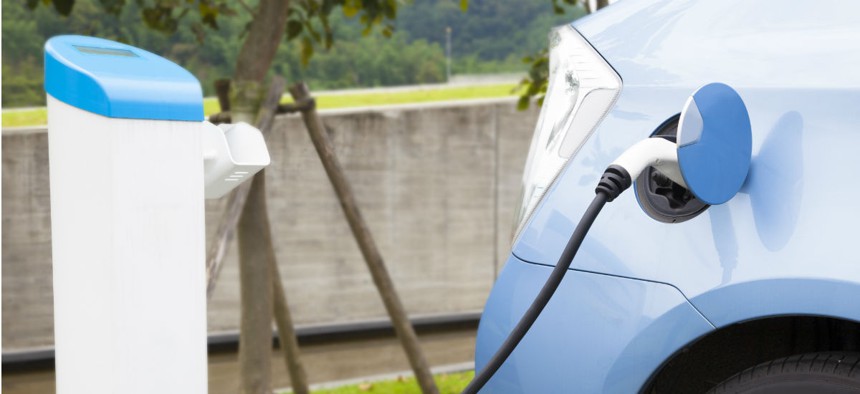
Tom Wang / Shutterstock.com
Much like Bob Dylan in 1965, federal employees may soon want to go electric.
An amendment approved by the House on Tuesday as part of a much larger transportation bill would authorize federal agencies to install electric car charging stations in their parking lots. The measure, introduced with bipartisan support, would charge each individual employee using the station a fee, making the proposal budget neutral.
Lawmakers currently have that option at the Capitol, and the amendment’s authors wanted to expand the program to the entire federal workforce. The General Services Administration would be tasked with the construction, installation and operation of the charging stations on federal properties.
"I was surprised to learn that members of Congress can recharge their cars when they are at the House of Representatives but my constituents who work at other federal offices are actually barred from having charging facilities at their federal workplace," said Rep. Zoe Lofgren, D-Calif., a cosponsor on the amendment, when introducing a similar, standalone bill last year.
Reps. Thomas Massie, R-Ky., who powers his Kentucky home with solar energy and himself drives an electric car, and Anna Eshoo, D-Calif., who represents 5,000 federal employees in Silicon Valley, also put their names on the amendment.
“As the nation’s largest employer, the federal government should lead by example in offering workplace charging,” Eshoo said last year.
In another amendment that could ease federal employees transportation, Rep. Dave Schweikert, R-Ariz., proposed requiring the departments of Agriculture, Interior and Energy -- which collectively make up more than one-third of the federal government’s civilian agency fleet -- to cut their vehicle fleets by 10 percent. To make up the difference, feds could use “commercial ride-sharing companies,” such as Uber and Lyft, or even Zipcar. The amendment was scheduled for debate Wednesday evening. Schweikert previously pitched the measure as standalone legislation.
The House is expected to wrap up consideration of the entire transportation bill this week.
(Image via Tom Wang / Shutterstock.com)







